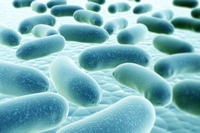In the same section
- Accueil
- EN
- Research
- Research projects
- Fédération Wallonie-Bruxelles
- "Actions de recherche concertées" (ARC)
-
Share this page
Research project "Molecular mechanisms of bacterial persistence" (ARC program)

The spread of resistant bacteria is a major public health threat. Virtually all bacteria can produce phenotypic variants of actively dividing cells, known as "persisters", that are tolerant to most known antibiotic.
The formation of persister cells is controlled by a molecule synthesized by the enzyme RelA. This enzyme is the heart of this research project : Abel Garcia-Pino and his colleague in Structural and Biophysic Biology lab will study it from “atomic to in vivo resolution”. Therefore they will determine : (1) ReIA’structure in different catalytic states and complexes; (2) Energetics of RelA interactions and conformational changes; (3) Molecular basis of RelA action and catalytic functions.
RelA has resisted high-resolution structural characterization because of its intrinsic instability and complexity. The use of nanobodies will solve this problem. This project aims not only at providing a molecular understanding of bacterial survival mechanisms but also to offer a new pathway to design new antibiotics.
Spokesperson
GARCIA-PINO Abel
Structural and Biophysic Biology lab
Faculty of Sciences
